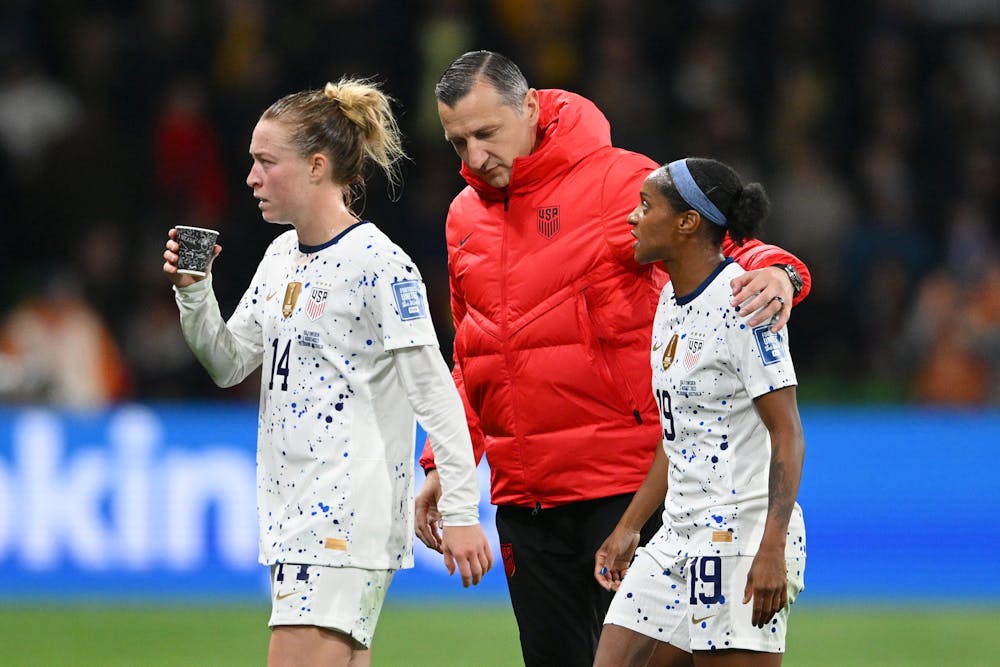It was 1991 in Guangdong, China, and 12 teams had something to prove.
The United States Women’s National Team was one of the frontrunners for the first-ever FIFA Women’s World Cup. They weren't close to having the same resources as the men's team — even wearing their hand-me-down jerseys — but the team still attacked the pitch with a fire and tact that led them to take first place. And while there was contention and rivalry between their opponents, they all had a common goal: to prove that women’s soccer was big enough to succeed and to be taken seriously at the international level.
But it’s 2023 now. And women’s sports have come a long way since then. The FIFA Women’s World Cup has expanded to 32 teams and has amassed millions of fans and millions of dollars in revenue. Since the start of the tournament, numerous women’s national teams have advocated for resources that have immensely helped women’s soccer develop across the globe, creating a legacy for future players and teams to look towards.
For a long time though, only a few teams dominated international tournaments with little variety in World Cup winners, one of these teams being the United States.
Out of the last eight Women’s World Cups, the USWNT has won four. They've also amassed four Olympic gold medals. It’s pretty much guaranteed that their roster will be stacked with the best players in the world. And the players have fought many battles – mentally, on the field and even in court – to get to that point. As a result, the USWNT is often favored to win every major tournament they participate in.
But their dynasty fell short in Australia and New Zealand. For the first time ever, the United States lost in the round of 16. After this tough loss to Sweden that ended in penalty kicks, many fans and commentators alike voiced their frustration and disappointment with the USWNT.
And I was one of them. I had my moments watching the games and knowing that the USWNT was not living up to their potential. There was so much hype around the team for this World Cup as they were going for a three-peat. To lose so early was dumbfounding and even embarrassing.
Whether fans of the USWNT were ripping Megan Rapinoe apart or gracefully dealing with the loss, there was one common point of agreement: head coach Vlatko Andonovski was ruining the team’s reputation.
Having taken over in October 2019, Andonovski succeeded soccer legend Jill Ellis, who coached the USWNT to two consecutive World Cup victories. The newly appointed coach had some big shoes to fill, as fans counted on him to keep the team’s momentum going.



